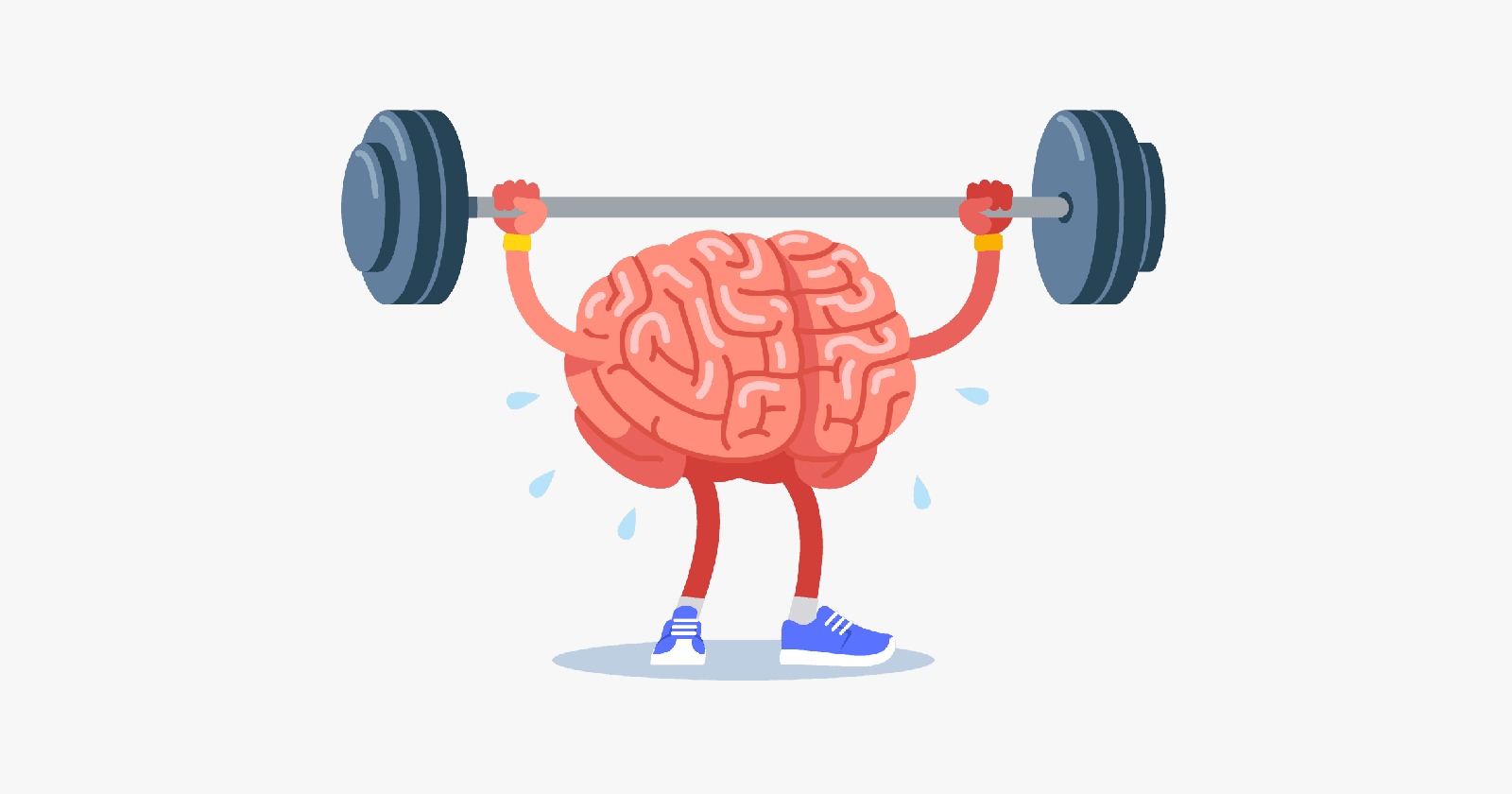
Building a Sleep Routine to Support Baby’s Physical Growth
A healthy sleep routine is vital for a baby’s physical growth and overall development. Consistent bedtime habits, proper sleep duration, and a calm environment ensure the release of growth hormones, good feeding patterns, and steady energy levels. Naps during the day, along with a peaceful nighttime routine, enhance brain and body growth. Avoiding common mistakes and seeking timely medical guidance help parents nurture healthy sleep and support their baby’s strong foundation for life.
💪 Fitness Guru
39 min read · 23, Aug 2025

Introduction
Sleep is one of the most important building blocks of a baby’s physical and mental development. While adults can push through the day on less rest, babies cannot—they need quality sleep to grow, recover, and develop both body and brain. Research shows that growth hormones are secreted during deep sleep, making it essential for healthy weight gain, bone development, and immune strength.
However, many parents struggle to establish a consistent sleep routine for their little ones. The good news? With patience, understanding, and small daily practices, you can help your baby form a healthy sleep routine that supports physical growth while also reducing restlessness and crankiness.
In this article, we’ll explore why sleep is crucial for your baby’s development, how to create a sleep routine, common mistakes parents make, and practical daily tips to ensure your baby gets the rest they need. Sleep is one of the most important factors in a baby’s overall development. While parents often focus on nutrition, play, and stimulation for growth, sleep is sometimes overlooked despite being equally essential. Babies grow rapidly in the first few years of life, and much of this growth occurs during sleep. Establishing a healthy and consistent sleep routine can not only ensure proper physical development but also foster emotional well-being, cognitive progress, and overall health. Creating such a routine, however, requires patience, understanding, and commitment from parents and caregivers.
When a baby sleeps, their body works in remarkable ways to promote growth. Growth hormone, which is vital for the development of bones, muscles, and tissues, is released primarily during deep sleep. This means that restful and sufficient sleep directly contributes to a baby’s height, strength, and immunity. Adequate sleep also supports the development of the nervous system, allowing the baby to respond better to learning and interaction during waking hours. Lack of proper sleep can affect not only physical health but also emotional regulation, feeding patterns, and the baby’s ability to explore their environment. Thus, building a consistent sleep routine becomes a cornerstone of healthy growth.
Creating a sleep routine begins with recognizing the baby’s natural rhythms. Infants cannot differentiate between day and night in the first few weeks, so gentle guidance from parents helps them align their internal clock. One of the best ways to support this is by exposing the baby to natural light during the day and maintaining a calm, dim environment at night. Over time, this helps the baby’s body understand the difference between active hours and resting hours. A consistent bedtime schedule further reinforces this pattern. Babies thrive on predictability, so putting them to bed at the same time every night helps signal their body that it is time to rest.
In addition to timing, the sleep environment plays a major role in building a routine. A quiet, comfortable, and safe sleeping space is essential for uninterrupted rest. A firm mattress, breathable bedding, and an uncluttered crib create a safe environment that supports long stretches of sleep. Temperature is another important factor—babies sleep best in a slightly cool room with good ventilation. Many parents find that using soothing sounds, such as white noise or gentle lullabies, helps babies fall asleep faster and stay asleep longer. The goal is to create an environment where the baby feels secure and relaxed, making it easier for them to drift into deep sleep.
Bedtime rituals are also key in establishing a routine. Babies respond positively to repetitive cues that signal winding down. Activities like a warm bath, gentle massage, or quiet storytime prepare the baby’s body for rest. These small rituals not only soothe the baby but also strengthen the bond between parent and child. Over time, the baby begins to associate these activities with sleep, making the transition smoother and more natural. Consistency is crucial—performing the same set of calming activities each night reinforces the idea that bedtime is predictable and safe.
Naps during the day are another part of the sleep puzzle. While parents often focus on nighttime sleep, daytime naps are equally important for physical growth and development. Babies need multiple naps in the first year, and these short periods of rest prevent overtiredness, which can make it harder for them to fall asleep at night. Structuring naps around feeding schedules and playtime ensures that the baby’s body receives adequate rest throughout the day. As the child grows, the number of naps decreases, but maintaining a routine helps them transition smoothly without disrupting their overall sleep quality.
Parents may face challenges in building a sleep routine, especially during growth spurts, teething, or illnesses, when babies often wake more frequently. During these times, patience and flexibility are vital. Comforting the baby without completely altering the established routine helps maintain balance. Gentle reassurance, soft rocking, or feeding when necessary can calm the baby while still keeping the sleep schedule largely intact. It is natural for sleep patterns to fluctuate, but consistency in approach helps the baby return to a stable routine once the temporary disruption passes.
Another important aspect of supporting sleep for growth is understanding the role of nutrition. A well-fed baby is more likely to sleep soundly. Newborns need frequent feedings, but as they grow, longer stretches between meals help them sleep for extended periods. Ensuring that the baby receives adequate nutrition during the day supports uninterrupted nighttime sleep, which in turn promotes growth. Parents should also be mindful of overstimulation before bedtime, as too much excitement or screen exposure can interfere with the baby’s ability to settle down.
As babies grow into toddlers, the importance of routine does not diminish. In fact, toddlers may resist bedtime as they become more curious and active. Here, maintaining consistency becomes even more important. A calm bedtime environment, predictable rituals, and firm boundaries help toddlers understand that sleep is non-negotiable. Adequate sleep continues to support growth in early childhood, reinforcing the importance of building strong routines from infancy.
The benefits of establishing a sleep routine extend beyond physical growth. Well-rested babies are generally happier, more alert, and better able to learn from their environment. Parents also benefit, as predictable sleep patterns allow them to rest and recharge, reducing stress and fatigue. In this way, building a sleep routine not only supports the baby’s growth but also enhances the overall well-being of the entire family.
In conclusion, sleep is one of the most powerful tools in supporting a baby’s physical growth and development. A consistent routine, safe sleep environment, soothing bedtime rituals, and balanced naps all contribute to healthy sleep patterns that fuel growth hormone production, strengthen the body, and prepare the baby for daily exploration. While challenges may arise, patience and consistency are key in creating a lasting routine. By prioritizing sleep from the earliest months, parents provide their baby with a foundation for strong physical growth, emotional balance, and long-term well-being. Building a sleep routine is not just about ensuring rest—it is about nurturing the healthiest version of the child for years to come.
Why Sleep Matters for Baby’s Growth
Sleep isn’t just rest—it’s when the body goes into repair and growth mode. Here’s why it matters:
- Growth Hormone Release
- During deep sleep, the body produces human growth hormone (HGH). This supports bone growth, muscle repair, and overall physical development.
- Brain Development
- Sleep strengthens neural connections, which are vital for learning, memory, and motor skills.
- Immune Support
- Babies who sleep well are better at fighting infections and illnesses because rest boosts immune function.
- Healthy Weight Gain
- Proper sleep regulates hunger hormones, preventing overeating or under-eating, both of which affect growth.
- Emotional Regulation
- A well-rested baby is calmer, more alert, and more likely to reach developmental milestones on time.
Understanding Baby Sleep Patterns
Babies’ sleep cycles are very different from adults:
- Newborns (0–3 months): Sleep 14–17 hours a day in short stretches.
- Infants (4–12 months): Need about 12–16 hours, including naps.
- Toddlers (1–2 years): Require 11–14 hours of sleep daily.
It’s normal for babies to wake up often at night. The goal is not forcing them into adult-like sleep, but gently guiding them toward consistent rest.
Steps to Build a Healthy Sleep Routine
1. Set a Consistent Bedtime
Babies thrive on routine. Choose a bedtime and stick to it every night. Over time, their body clock adjusts, making it easier for them to fall asleep.
2. Create a Relaxing Pre-Sleep Ritual
Simple rituals signal to your baby that it’s time to sleep:
- A warm bath
- Gentle massage with baby oil
- Soft lullaby or bedtime story
- Dimmed lights and calm environment
3. Ensure a Comfortable Sleep Environment
- Keep the room slightly cool (not too hot)
- Use soft bedding and firm mattresses
- Reduce noise and keep lighting low
4. Encourage Day–Night Awareness
Expose your baby to natural daylight during the day and keep nights quiet and dark. This helps regulate their circadian rhythm.
5. Feed Before Bedtime
A satisfied baby sleeps longer. Ensure your baby is fed before bedtime, but avoid overstimulation during feeding.
6. Use Soothing Techniques
If the baby wakes up, instead of immediately picking them up, try gentle patting, white noise, or soft humming to help them drift back to sleep.
Daily Sleep Practices for Healthy Growth
Morning Routine
- Wake your baby around the same time each day
- Expose them to natural sunlight (helps regulate sleep cycles)
- Offer a morning feed in a calm setting
Daytime Routine
- Allow short naps (but not too long before bedtime)
- Encourage tummy time or gentle play to tire them naturally
- Avoid overstimulation with loud noises or too many toys
Evening Routine
- Keep evenings quiet and dimly lit
- Offer a warm bath or light massage
- Feed and cuddle gently—no rough play before bed
- Put baby to bed drowsy but awake, so they learn to self-soothe
Weekly Sleep Habits to Support Growth
- Stick to the same bedtime every day, even on weekends
- Introduce one calming element like soft music, lullabies, or bedtime storybooks
- Track your baby’s naps to avoid too much daytime sleep
- Reassess the sleep environment weekly—adjust lighting, temperature, or bedding as needed
- Practice consistent responses to night waking (gentle patting, humming, or feeding when necessary)
Common Sleep Challenges and Solutions
1. Frequent Night Wakings
Cause: Hunger, wet diaper, or discomfort
Solution: Ensure feeding before bedtime, check diaper, and keep environment comfortable.
2. Short Naps
Cause: Overstimulation or irregular nap schedule
Solution: Create nap-friendly settings with white noise or dim lights.
3. Baby Resists Bedtime
Cause: Inconsistent routine or too much daytime sleep
Solution: Stick to consistent bedtime rituals and limit long evening naps.
4. Colic or Gas-Related Restlessness
Cause: Digestive discomfort
Solution: Burp the baby after feeds, gentle tummy massage, or consult pediatrician.
Nutrition + Sleep: A Powerful Combination
Food and sleep work together in supporting physical growth:
- Breast milk and formula provide tryptophan, which promotes good sleep.
- Iron-rich foods (once solids are introduced) support energy balance and deeper sleep.
- Hydration prevents night waking due to discomfort.
Always time feeds so your baby doesn’t go to bed hungry or overly full.
Myths About Baby Sleep: Busted!
“Keeping baby awake during the day helps them sleep better at night.”
→ False! Overtired babies actually become fussier and struggle to fall asleep.
“Solid food before bed makes babies sleep through the night.”
→ Not true. Introducing solids too early can harm digestion. Sleep comes with maturity and routine, not extra food.
“Babies should sleep in complete silence.”
→ Wrong! Many babies are comforted by white noise, which mimics the womb.
“If baby wakes at night, you should always feed.”
→ Not always. Sometimes it’s just comfort they need, not hunger.
“Sleep training means letting babies cry endlessly.”
→ Misleading! Gentle methods exist that involve soothing and comfort without ignoring their needs.
Daily Sleep Routine Example
Morning
- Wake up around the same time daily
- Feed and expose to sunlight
- Gentle playtime
Daytime
- Two to three naps spaced out
- Calm environment for naps
- Short walks or outdoor time
Evening
- Bath + massage
- Feeding session
- Quiet lullaby with dim lights
- Baby placed in crib while drowsy
Night
- Consistent soothing response if baby wakes
- Avoid overstimulation during night feeds
- Keep lights low and voice soft
Conclusion
Building a sleep routine for your baby is not about rigid schedules—it’s about creating consistency, comfort, and cues that help them rest deeply. Sleep is when your baby grows taller, stronger, and healthier. It fuels their brain, builds their bones, and protects their immunity.
By combining daily rituals, proper nutrition, and gentle soothing techniques, you can establish a rhythm that supports your baby’s physical growth and emotional well-being.
Remember—patience is key. Every baby is unique. What matters is consistency and love. Even small steps like dimming lights, massaging before bed, and feeding calmly can transform your baby’s sleep quality.
Start building these habits today. Your baby’s growth, health, and happiness will flourish with every restful night.
Q&A Section
Q1:- Why is sleep so important for a baby’s physical growth?
Ans :- Sleep triggers the release of growth hormones, supports cell repair, strengthens the immune system, and helps in healthy brain and body development.
Q2:- How many hours of sleep does a baby need in the first year?
Ans :- Newborns need about 14–17 hours daily, while infants around 6–12 months require 12–16 hours including naps.
Q3:- What role does a consistent bedtime routine play in better sleep?
Ans :- A fixed routine with calming activities signals the baby’s body that it’s time to rest, reducing fussiness and improving sleep quality.
Q4:- Which activities should be included in a bedtime routine?
Ans :- Gentle activities like a warm bath, soft lullabies, reading, or light rocking prepare the baby’s body and mind for restful sleep.
Q5:- How does the sleeping environment affect a baby’s growth?
Ans :- A quiet, dark, cool, and comfortable room helps babies sleep deeply, allowing their bodies to grow and recover optimally.
Q6:- Why are naps important during the day for babies?
Ans :- Naps provide essential rest intervals, preventing overtiredness and supporting brain development, learning, and healthy physical growth.
Q7:- How can parents manage nighttime awakenings?
Ans :- By keeping interactions calm and minimal—such as gentle feeding, diaper changes, or soothing without playtime—babies can return to sleep quickly.
Q8:- What are common mistakes parents make while setting sleep routines?
Ans :- Irregular schedules, excessive screen exposure, feeding right before sleep, and inconsistent bedtime rituals disrupt healthy sleep patterns.
Q9:- How does healthy sleep influence feeding and energy levels?
Ans :- Well-rested babies feed better, gain weight steadily, and stay active during wake times, all of which support strong physical growth.
Q10:- When should parents consult a pediatrician about sleep concerns?
Ans :- If the baby consistently struggles to fall asleep, snores heavily, or shows poor growth despite adequate feeding and care, medical advice is needed.
Similar Articles
Find more relatable content in similar Articles

How to Build a Skincare Routine Based on Your Skin Type (Oil..
A personalized skincare routi.. Read More

The Perfect Daily Skincare Routine: Morning to Night Essenti..
A perfect daily skincare rout.. Read More

Epigenetics and Exercise – How Your Workout Affects Your Chi..
“Exploring how regular physica.. Read More

Fitness for the Brain – How Workouts Rewire Your Mind...
“Discover how physical exercis.. Read More
© 2024 Copyrights by rFitness. All Rights Reserved.